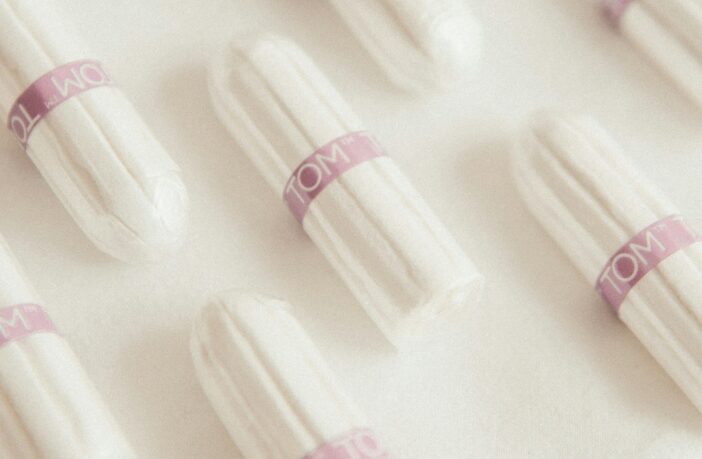By Aria Brent
AFRO Staff Writer
abrent@afro.com
A recent study conducted by the University of California Berkeley (UC Berkeley) found toxic metals in a variety of tampon brands currently being sold throughout the United States. The report, released by the university’s department of public health, noted lead, arsenic and cadmium in 14 of 30 tampon brands studied.
Few research studies related to chemicals in tampons, despite it being a public concern.
The University of California Berkeley is warning women about menstrual products being used on a monthly basis for hygiene. A recent report found that some tampon brands contain toxic metals like arsenic. (Photo credit: Unsplash.com / Maddi Bazzoco)
According to the report, “metals have been found to increase the risk of dementia, infertility, diabetes and cancer. They can damage the liver, kidneys and brain, as well as the cardiovascular, nervous and endocrine systems. In addition, metals can harm maternal health and fetal development.”
Though the report raised concern, researchers noted that “for the moment, it’s unclear if the metals detected by this study are contributing to any negative health effects. Future research will test how much of these metals can leach out of the tampons and be absorbed by the body.”
During the study, 16 different types of metal were found in over 30 tampons from a total of 14 different brands. The amount of metal found in the tampons varied based on factors such as the country of origin. Name brand products were also compared to generic offerings. Researchers also looked at products labeled as “organic.”
Overall, it was found that a multitude of metals are in several types of tampons and no specific kind had consistently lower amounts of all or most metals.
Notably, the report does not mention any of the brands found to have the toxic metals, leaving consumers in the dark about which brands to avoid.
Olivia Atley, a doula, specializing in care before, during and after pregnancy said that Black women should be vigilant about this report given the high rate of maternal morbidity and mortality in the Black community.
“It’s a reminder that we need to be very vigilant about the things that we are using in and on our bodies,” she said, speaking of Black women. “The vagina is very absorbent and when you’re placing anything into it that’s a great way to help the body absorb things faster.”
“When you’re putting toxins in the body, they’re also going to be absorbed faster. This could lead to infections, ovarian cysts and I know some people have experienced polyps,” she added.
The report has many women rethinking the menstrual products they use. Some women have sworn off tampons, while others don’t seem to be too concerned with the information found in the report.
“If you read some of the labels on your tampon box– it has a warning about some of the dangers. Tampons have been dangerous, this is just another thing to add to the list of risks and side effects,” said Tonesty Burt, a student-athlete at Missouri Western State University.
As an athlete, Burt said tampons are a necessity. She said other menstrual products either don’t appeal to her or aren’t conducive to her active lifestyle.
“Pads are uncomfortable to wear in general but especially when running. They also aren’t very reliable when you’re constantly moving,” Burt said.
With no desire to have children, Burt noted the risks posed to her maternal health don’t concern her. However, other women told the AFRO that the information presented in the UC Berkeley report has caused concern.
“I started using tampons when my cycle was heavier, but since switch[ing]birth controls my cycle is lighter and doesn’t last as long,” said Destaney Smith, a primary care assistant from Columbus, Ohio.
“I don’t really need them, but I got used to using them,” she said, speaking of the tampons she used to rely on. “Knowing they have metals in them– that’s even more reason to stop using them.”
The Food and Drug Administration (FDA) has classified tampons in the Class II category reserved for medical devices with non-significant risk. Although manufacturers are required to submit detailed risk assessments of the product component, design and test results, there currently aren’t any regulations in place that require manufacturers to test their products for toxic metals.
Kimberly Clark and Proctor and Gamble, well known tampon manufacturers, were contacted for comment, but the AFRO received no response.



